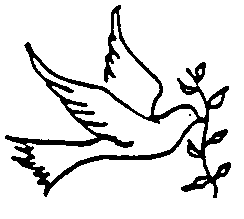Today is Remembrance Day, the day that the regina mom learned was set aside to honour our war veterans, those who fought so we could have peace. What no one mentioned during her upbringing was the hundreds of thousands of women who suffered as a result of gendered power during times of war. No one taught her that rape is a weapon of war.
Warring groups use rape as a weapon because it destroys communities totally, says Major-General Patrick Cammaert, former commander of UN peacekeeping forces in the eastern Congo. “You destroy communities. You punish the men, and you punish the women, doing it in front of the men.” Adds Cammaert: “It has probably become more dangerous to be a woman than a soldier in armed conflict.”
Rape has been a dishonourable camp follower of war for as long as armies have marched into battle. In the 20th century, perceptions of rape in war have moved from something that is inevitable when men are deprived of female companionship for prolonged periods to an actual tactic in conflict. The lasting psychological harm that rape inflicts on its victims has also been recognized: Rape is always torture, says Manfred Nowak, Special Rapporteur on torture and other cruel, inhuman or degrading treatment or punishment.
Yes, rape is always torture. The Amnesty International report, LIVES BLOWN APART, explores some of the horrors experienced by women and girls in war-torn regions
In most of today’s wars, civilian casualties far outnumber those of armed combatants. Women and men both suffer human rights violations in conflicts, such as unlawful killings and torture. However, the particular ways in which women are targeted for violence, or are otherwise affected by armed conflict, are usually overlooked.
Women and girls are more likely to be the target of sexual violence, especially rape. Women face extra, sometimes insurmountable, obstacles to obtaining justice, because of the stigma attached to survivors of sexual violence, and women’s disadvantaged position in society. Whether civilians or combatants, refugees or displaced people, the impact of war weighs particularly heavily on women.
In this report, Amnesty International shows some of the ways in which conflict affects women, and the many different roles which women play in conflict. Women are not only victims and survivors, but also activists, negotiators, peace-builders and human rights defenders. Attempts to address the human rights consequences of conflict, including its particular effects on women, can only be comprehensive and long-lasting if women play an active part in rebuilding society at all levels.
Last month, more than 100 countries agreed to endorse the Declaration of Commitment to End Sexual Violence in Conflict.
The declaration holds that sexualized violence in conflict is in direct violation of international humanitarian law (IHL) and declares that the perpetrators should be pursued and arrested no matter where they are in the world. The declaration also calls upon signatory member states to do more than raise awareness to the issue and to provide better support not only to the victims but to national and international efforts to prevent and respond to sexualized violence in conflict.
80 nations refused to sign the Declaration, including Burma/Myanmar.
The international community, eager to praise these reforms, has neglected to call Burma out on its sexualized violence problem, ignoring the ingrained culture of impunity that has allowed sexualized violence to flourish for decades. The military regime that came to power in a 1962 coup has used rape, particularly against women in the ethnic and border regions, as a way to quell opposition movements and retain control. A weapon of war, the practice is typically employed to keep communities compliant by sowing fear and humiliation and punishing and interrogating those who would support opposition groups. Sadly, the Burmese military junta’s campaign of widespread and systematic sexualized violence continues unabated today.
And, shortly after that, the Government of Canada spoke out about violence against women in times of war. But, the government refuses to provide funding through its international development program to help women who survive the atrocity and find themselves pregnant as a result and seek to terminate the pregnancy.
Status of Women Minister Kellie Leitch is blasting the “abhorrent” practices of rape as a weapon of war and the forced marriage of young children in the developing world.
But she’s defending Canada’s refusal to fund any aid projects that might help the victims of such barbaric practices obtain abortions.
Leitch, who was at the United Nations on Friday to celebrate the UN’s International Day of the Girl, told The Canadian Press that Canada needs to target its aid efforts and has chosen to focus on pre- and post-partum maternal and child health.
How much does the regina mom despise her country of origin right now? As one who has experienced rape, survived it and come out the other side of it, even though it did not take place in a war zone or a time of war, you can bet it’s more than a little. The multiple impacts of rape are horrendous, without war thrown into the mix.
AI notes that the consequences of sexual violence experienced by females include “serious and chronic medical problems, psychological damage, life threatening diseases such as HIV/AIDS, forced pregnancy, infertility, and stigmatization and/or rejection by family members and communities.” Few victims of sexual violence have access to health care in their time of need.
We must do more to end the global war on women.



